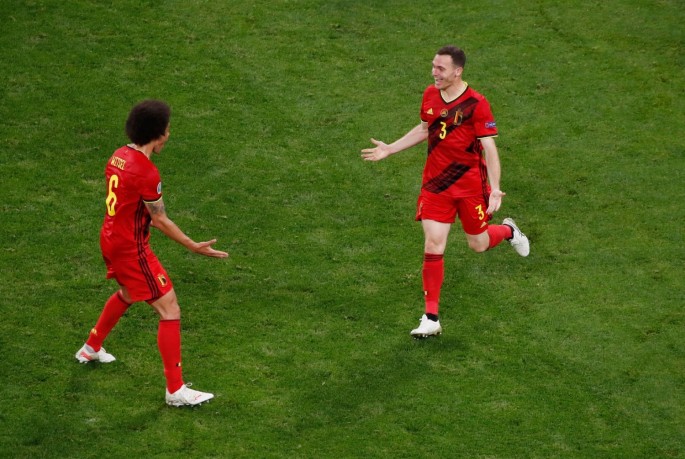Defender Thomas Vermaelen has not had much playing time for Belgium in recent years, never mind scored, so the disappointment of not being credited with a goal against Finland at Euro 2020 on Monday was still rankling 24 hours later.
Vermaelen, making his first start of the tournament, powered a header from Kevin De Bruyne's corner against the join of the post and the bar with 16 minutes left of the Group B match in St Petersburg.
The ball bounced back, hit the hand of Finland goalkeeper Lukas Hradecky and fell back over the goal line to break the deadlock -- despite Hradecky's desperate attempt to scoop it out back out.
"Honestly speaking, at the moment it went in, I thought it was my goal but I didn't spend the rest of the game worrying about it," the 35-year-old Vermaelen, who debuted in 2006 for his country and has 83 caps, told a news conference on Tuesday.
"After the final whistle, looking up at the big screen, I saw it was given as an own goal. But I see it as my goal, although officially it might not be.
"It was goal we made ourselves, not one that was the fault of the opponent. It was a perfect corner delivered by Kevin and I headed it in the direction of the goal. So, that it is officially, an own goal is a pity," he said.
Own goals are one of football's biggest grey areas and are not mentioned in the Laws of the Game, not even in the glossary of football terms.
But it is generally considered that if an effort on goal was on target before any deflection, the goal is credited to the striker of the ball, while if an effort was clearly going off target, but is then deflected into the goal, that is an own goal.
Vermaelen's effort hit the woodwork, bounced back into play and would not have gone back into the goal unless it struck Hradecky so, sadly for the defender, it really was an own goal.



























